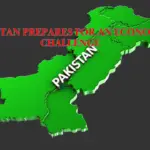Senegal’s Prime Minister, Ousmane Sonko, made a significant commitment on Thursday to initiate thorough investigations into what he termed “widespread corruption” that occurred during the previous government prior to April. This pledge came as he accused the former administration of manipulating financial data for its benefit.
In his address, Prime Minister Sonko highlighted the detrimental effects of what he described as a “policy of unrestrained indebtedness” under former President Macky Sall. He articulated his concern that this approach had resulted in the misuse of national resources, which lacked transparency and ultimately facilitated rampant corruption throughout the government’s operations. Sonko emphasized that the financial practices during the previous regime had created an environment conducive to extensive financial mismanagement.
Sonko’s remarks reflect a growing sentiment in Senegal about the need for accountability and transparency in governance. The allegations of widespread corruption are not just accusations; they signify a broader call for reform within the country’s political and financial systems. By addressing these issues publicly, Sonko aims to restore trust in the government and assure citizens that their concerns about financial integrity are being taken seriously.
The Prime Minister’s statement also underscores a crucial aspect of his administration’s priorities. By focusing on accountability, Sonko is positioning his government as one that is committed to ethical governance and the responsible management of public funds. His vow to investigate corruption allegations indicates a proactive approach to governance, suggesting that his administration will not shy away from addressing past misdeeds, regardless of their political implications.
Furthermore, Sonko’s comments resonate with citizens who have long been concerned about the transparency and accountability of public institutions. Many Senegalese have expressed frustration with what they perceive as a culture of impunity among political leaders, where allegations of corruption often go unpunished. By pledging to investigate these issues, Sonko is attempting to align his government with the public’s demand for greater accountability.
The ramifications of the investigations could be significant. If evidence of corruption is found, it could lead to legal consequences for former officials and may even reshape the political landscape in Senegal. The potential for reform and greater accountability could serve as a catalyst for enhancing the democratic processes within the country.
As Sonko embarks on this mission to confront corruption, he also faces the challenge of ensuring that the investigations are conducted impartially and transparently. The success of these inquiries will depend not only on the evidence presented but also on the public’s perception of the integrity of the process. Ensuring that these investigations are free from political influence will be critical in rebuilding trust among the Senegalese people.
In conclusion, Prime Minister Ousmane Sonko’s commitment to investigate corruption under the previous administration marks a pivotal moment in Senegal’s political landscape. His focus on accountability and transparency reflects a broader demand for reform and ethical governance. As he navigates the complexities of these investigations, the Prime Minister has the opportunity to reshape the relationship between the government and the citizens, fostering an environment where public funds are managed responsibly and where accountability is the norm, not the exception.

